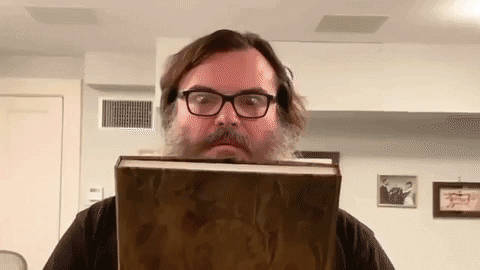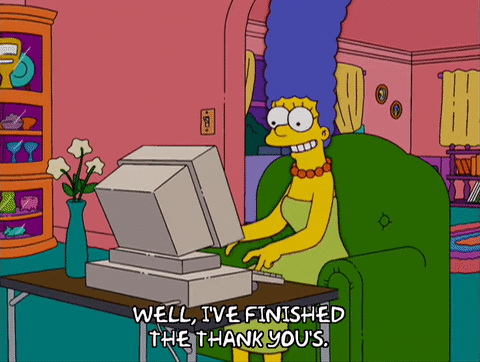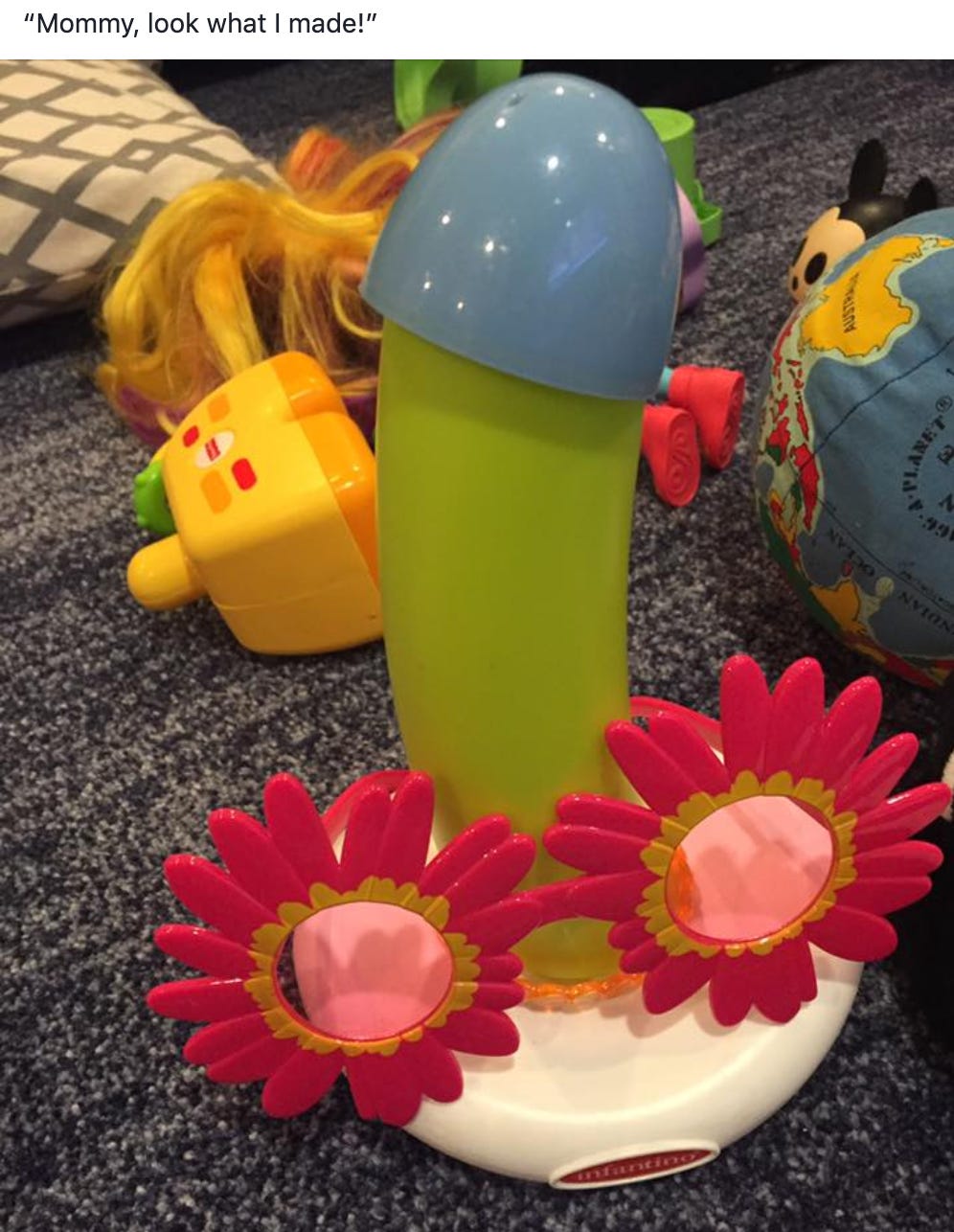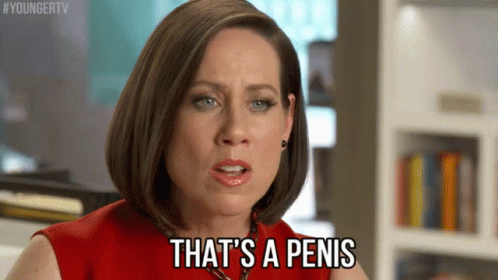How to publish a book and be a mom
...with a dayjob, during COVID. In only 18,000 grueling steps
My friend Kelly O’Connor McNees published her historical novel The Myth of Surrender last week and I wanted to talk with her about the process of writing, selling and publishing a book when you’re a working mother. This is Kelly’s fifth book, and she’s a former editor, so I thought she would be great to give a realistic take on the pain and pleasure of that work. I hope you don’t take what follows as discouragement from writing your own book, but a weird reassurance that if you feel hopeless or lost or unseen (not unlike raising kids!) that’s a feature, not a bug. It reminds me of a good description I heard last week from Bob Odenkirk promoting his new book when he described his early path as “Fail a lot at the thing you like best.”
Where were you in the process of the book when COVID struck in March 2020?
I had a draft but it hadn’t had sold yet: I was still revising. I was lucky that I wasn’t in the drafting phase when school closed and everything, because I probably would’ve given up if I was that early on. With revision, it’s a little bit easier to do it in chunks. I was definitely far enough in that I didn’t immediately think of abandoning it.
What was your strategy for working on it during COVID, while your then-eight-year-old daughter was home, while we were all depressed and distracted?
Having a distraction, that I could go into the world of the book and forget about what was happening in my real life was a nice thing, to be able to check out. I was just trying to do a little bit at a time, and not let it die.
Getting up really early before everybody else is up has always been one of my ways of getting it done. But I hate when people say that, because then you picture someone that’s so disciplined. I go in spurts where I do that for two weeks and then I get really exhausted because I’m getting up too early and I’m not going to bed early enough. Then I have a meltdown, and then I sleep in for three days, and then I’m mad at myself. It’s never a smooth process, but I keep hacking away at it.
Which books came before your daughter was born and which came after?
The first one was before, in 2010. Then the second one, I wrote it before she was born, I turned the copy edits in right before I went to the hospital to have her, and it came out after she was born. The third one was super hard because she was a baby while I was writing that, and I completely was unprepared for how exhausted I would be. I remember going over to work at the library and just putting my head down on the table and crying because I was so tired.
Then there was a gap for a few years and she was older when I was working on Undiscovered Country. But that one was tough for other reasons. In some ways, that was such an emotional train wreck that when I started working on The Myth of Surrender, I was very determined that I was not going to go through all of that drama again.
What was the drama from Undiscovered Country that you felt like you could control or adjust for in the future?
I really believed in that book, which is about Lorena Hickok and Eleanor Roosevelt. I think I was disappointed that my agent at the time couldn’t find a home for it. Then I ended up changing agents a couple times, and ended up with the agent I’m with now [Kate McKean, who has a great Substack on publishing], and she’s amazing. She eventually did find a home for it with Pegasus, which is where this new book is with as well. I was afraid I had made this huge mistake by putting all my eggs in this basket and believing in this idea I had, when maybe I should have listened to the writing on the wall that nobody wanted to publish it.
It was bad for me creatively. I lost all proportion in my life in terms of how important that should have been to me. In the time in between, I took a step back and thought, “If I’m going to keep doing this, I need to have a different kind of relationship with my work, so that it’s part of my life, but not taking over my whole life. The book is not you. The book being rejected is not you being rejected.” Publishing is a business, and sometimes things work out and sometimes they don’t, but that doesn’t necessarily mean the work is not good. You have to think about your relationship to your creative work as a separate thing from your relationship to the book publishing business, because they’re really two different things.
When someone has dream to publish a book, it’s very emotional. I know that feeling inside out. It’s so important to you to achieve that. You want to walk into a bookstore and you know where your book would be on that shelf, and stick your finger on the shelf where it would go. I mean, it is an incredible feeling to achieve that when it’s something you’ve dreamed about your whole life. But the business of publishing is something that will chew you up.
Do you feel like only experience can come with that, or are there other ways to work that into your mindset?
Probably a little bit of both. I think everyone thinks that it’ll be different for them. Including me. I was very lucky with my first book because it got a lot of marketing attention, and it had a big-name editor and all this stuff. I had a warped idea of what it was going to be like going forward, that it would be smooth sailing from there. Anyone who’s been published for a long time has had these kind of ups and downs, and that’s just how it works. The business has changed so much, even in the 12 years since my first book. A lot of the things that worked to sell books don’t work anymore.
I think [it’s ideal if] if you can have a healthy distance between yourself and the outcome of that publishing gamble that everybody takes when they publish a book, if you don’t let yourself get too caught up in the notion that if the book fails, that’s me failing. It can go both ways too, because I think if you have a book that does really well, it’s, of course, easy to assume it’s because you’re brilliant, and you’re saying something that’s never been said before and all of those things. Neither of those extremes is very helpful to having a sustainable writing career. Or just a writing practice, even if you aren’t published.
There’s a Jane Smiley quote that goes, “You either love the work or you love the rewards. It’s much easier if you love the work.” So if you like to write, then the writing does have to be its own reward. That’s hard to believe, but it’s actually true.
Think of how many people we know just in our social circles who are brilliant writers, who for whatever reason, they haven’t gotten published, they haven’t found their audience, their work isn’t getting the attention it deserves. Of course, there are also a lot of people who are getting a ton of attention for no good reason.
How many manuscripts in your life, and if you say zero, I won’t be too mad, have you walked away from or quit on?
Maybe four. I would count in that category things that I wrote at least several chapters and an outline, and intended to see them through. But I either hit a wall, could not figure out the story, or was dissuaded by someone who read it.
Book writing reminds me of new motherhood in a certain way, in that it comes out and everyone’s like, “Yay. Way to go.” To them, it’s done. To you, it’s up to you how much work you want to put into it, and that work never stops. I think people just assume that now you’re complete. Now you’ve done your thing, and let the money roll in.
I think when you love to write and you’re working on a book that you believe in and care about, it’s not that hard to make yourself work on it. Because you’re in your little bubble, your little cave with this little art project that you are making, and it’s private. It’s fun to work on this thing that you care about. But then when it’s out in the world and you have to find a way to talk about it and spread the word and get attention for it in a way that’s not obnoxious and not tone deaf with everything else that’s going on, nagging all your friends to help you promote it. Some people are just naturally good at that, and I’m not. You have to let go of the outcome. I think some people get so frantic during this phase, because they feel like I have to do everything, to leave no stone unturned. I just think that you have to know that there are limits to how much you can control about the sales, and about how much coverage you get, and whether it gets reviewed in certain places. It may be that it’s just a small book that nobody hears about, and you have to be okay with that possibility.
I’ve been there where you go to promote your book and nobody shows up. You’re like, “I could just be doing nothing at home instead of being out here in Woodstock.”
One time in Asheville, I had an event at a great bookstore where no one showed up, and I didn’t know what to do. I didn’t know if I should still do my little spiel for the staff. Then I was so relieved, because at the last minute, these two men walked in and sat down in the front row. Then one of them fell asleep, and I realized they were homeless, and they were just coming to get out of the heat. I’m glad they were able to do that, but it was not a great showing for me.
How has your relationship to reading and fiction has changed since you became a mom?
I’ve had to let go of a lot of preconceived ideas I had about what it has to look like to actually do the work. Like Stephen King’s On Writing and books like that are written by men. They say things like, “Write with the door closed,” and you can’t do that when you have a kid.
In the beginning I was very frustrated that I was doing it wrong somehow, and then I needed to work harder to carve out space and time away from my family or away from home, away from my responsibilities. But you see that that’s just not the conditions that women are writing under. The answer is not, “Oh, it’s impossible because you have kids.” The answer is it has to look different than what you might think it’s going to look like. That means doing it in smaller increments of time, or whatever systems you have to come up with to make it work. But it’s also okay to be mad that your whole life you’ve been led to believe that it looks a certain way, because the only people talking about it are men.
What do you put on the back burner while you’re writing or revising?
I give up exercise. I’m getting up early to work on this when I could be working out. I give up doing other things on the weekends that I could be doing with friends. But then of course, during the pandemic, we couldn’t do any of that stuff anyway, so maybe it didn’t feel like as big of a sacrifice. You have to give up the idea that you’re going to write this perfect book. I think a lot of people that want to write are kind of addicted to that. That’s what stops them actually, is they don’t want to start or they don’t want to finish the thing because they know it’s going to fall short of what they hope. If they never finish it, then they never have to face that.
I think if you want to see your project through and you want to finish something that you can submit, then you have to give up this fantasy that you’re going to write the perfect book that’s going to blow everyone’s mind, and change book publishing as we know it. My friend Eleanor says, “You start out writing a castle, and then in the end, you’re happy if you have a garden shed, but it’s a really nice garden shed.” Moms have limited time, okay? So you have to think about where are your energy leaks. A big energy leak is being anxious about whether it will be good enough, or how it will turn out, or what will happen, or who won’t like it but just get to work on it.
But the work is also incredibly (addictively!) satisfying when it comes together, when I get to tell the story of characters I care about and take another look at a historical era that I think has something to teach us about our lives right now. All the work and frustration really is worth it when a scene clicks into place or when the book as a whole finally comes together — finally goes from being a Word document to a hardcover book you can hold in your hands. And then I get to share it with readers and bring them in on the story. Those are the moments that really confirm for me I'm doing what I'm here to do.
How about working on a book when you have a day job as well? How did you compartmentalize your time and energy around that?
So before the pandemic, it actually was nice when I would go to the office, because then I would have this time on the El. I liked that it was a set time. Almost like a game with myself, when the doors closed, I had to start working and I couldn’t stop until I got to one stop before my stop, or something like that. It’s kind of amazing how much you can get written, and this is when I was revising more but I was rewriting certain sections, how much writing you can actually do in 30 minutes if you aren’t sitting in front of your computer, looking at Twitter or whatever.
I guess in some ways, it creates maybe new pockets of time, if you have a commute or something like that. But of course, for the most part, it’s a net loss of time and energy, depending on what kind of day job you have. I do a lot of writing in my day job too, so that muscle’s already getting worked. Sometimes I feel like I don’t have enough left for my own projects at the end of the day, or at the beginning of the day.
Maybe once a month you go away for half the day and get as much done as you can, or you go on a three-day weekend. I’ve done that several times over the years, where you go on a three day weekend and just write as much as you can the entire time. Sometimes that works great. Sometimes it doesn’t because you’re so tired when you get there that all you want to do is sleep. But maybe, if you at least write on the third day, then that’s something. I think the biggest thing over all these years that I’ve realized with trying to write and have a kid and have a job is what works one time isn’t necessarily going to work the next time, but you just have to keep trying a different way, and a different way, and a different way, to get around those obstacles.
I think some people think that there is something less real about being a writer who has a day job. I’ve been both. The upside is no commute and no meetings. The downside is a lot of boredom and health insurance is expensive. I don’t think my work is more noble because I don’t work in an office anymore.
Being financially insecure, if you are a full-time writer who’s totally dependent on your writing to produce income, and you have a lot of volatility and you don’t know from month to month how much money you’re going to make, and you’re not an independently wealthy person—the stress that causes is a huge energy suck and can get in the way of being creative. There’s definitely a school of thought that having a day job that is manageable and not too taxing, but pretty steady and not too stressful is good for your creative life. Because you don’t have to worry where your next paycheck is going to come from. That allows you too, to pursue creative projects that maybe aren’t that commercial, or something that you just feel you want to write, but you’re not sure if it will sell, or sell to that many people, but it’s important.
I’ve seen people follow the path where they really want to be a full-time writer and not have a day job, so they feel very beholden to write whatever their publisher wants them to write next, because it’s the thing that the publisher thinks is going to sell in that moment. You get a little bit where you’re not that interested in what you’re writing, because you’re doing it for them. It’s not being driven by your own curiosity about the themes or the characters.
Are you onto the next thing yet, or you haven’t figured it out yet?
I would say I’m struggling. I was able to write and have the full-time job and do the parenting thing, but I have been struggling since COVID to do all four. Pandemic, job, parenting and write. I keep joking that I’m retired, but I don’t know if I mean that or not. Eventually I will probably find the next thing, but right now it’s just taking everything to get through in the winter and everything.
Not to be cheesy about it, but you have a relationship with your work. It’s like a marriage. Over time, you have a deeper understanding of how you work, and where your ideas come from, and what you need, what works for you, what doesn’t work for you, to keep pushing yourself along with a project. The only way that you get that richer relationship is if you stick with it.
End credits
Thanks for reading Evil Witches, a newsletter for people who happen to be mothers. Feel free forward this issue to someone who could maybe use this. If you haven’t yet, I hope you consider becoming a paid subscriber which gets you bonus content and threads! If you’re already a subscriber, this week’s member’s-only issue had a call for reader expertise, if you missed it.
If you have any questions, feedback, or suggestions for the newsletter you can reply to this email or talk to other witches on Twitter.
The archives live here. I just took a random stroll through them so here is a hodgepodge sampler of previous issues if any of these sound fun or helpful to you. Free to all issues: Things moms are allowed to do; divorcing your spouse in a friendly way; tips on dealing with norovirus now that old-fashioned illnesses are making a comeback; how to be a feminist dad.
Subscriber issues and threads: parenting paradoxes, what do your kids call grownups?; finding time to read; and our favorite processed foods.








I love, love, love the honesty here! Thank you to Kelly for this part -- "I hate when people say that, because then you picture someone that’s so disciplined. I go in spurts where I do that for two weeks and then I get really exhausted because I’m getting up too early and I’m not going to bed early enough. Then I have a meltdown, and then I sleep in for three days, and then I’m mad at myself. It’s never a smooth process, but I keep hacking away at it." -- b/c it helps me feel NORMAL! Also, the part about the 3 day writing weekend but then maybe sleeping most of it b/c you're so exhausted but maybe writing some on day 3. I have been struggling to write my own book thru pandemic, work, parenting, depression, elderly snowbird parents w health issues and it has not been going well, at least in terms of how I *think it should go. So I beat myself up and blame myself b/c if only I was more disciplined, a better writer, a better person...and of course that doesn't actually help; it only makes it worse. Thank you both for this very real slice of the writing life! (Any tips on separating yourself from the work, though? I mean, esp. when the work is, oh, what you're pouring your life into?)
Claire!
T
R
U
T
H
"I give up exercise. I’m getting up early to work on this when I could be working out. I give up doing other things on the weekends that I could be doing with friends. But then of course, during the pandemic, we couldn’t do any of that stuff anyway, so maybe it didn’t feel like as big of a sacrifice. You have to give up the idea that you’re going to write this perfect book. I think a lot of people that want to write are kind of addicted to that. That’s what stops them actually, is they don’t want to start or they don’t want to finish the thing because they know it’s going to fall short of what they hope. If they never finish it, then they never have to face that."